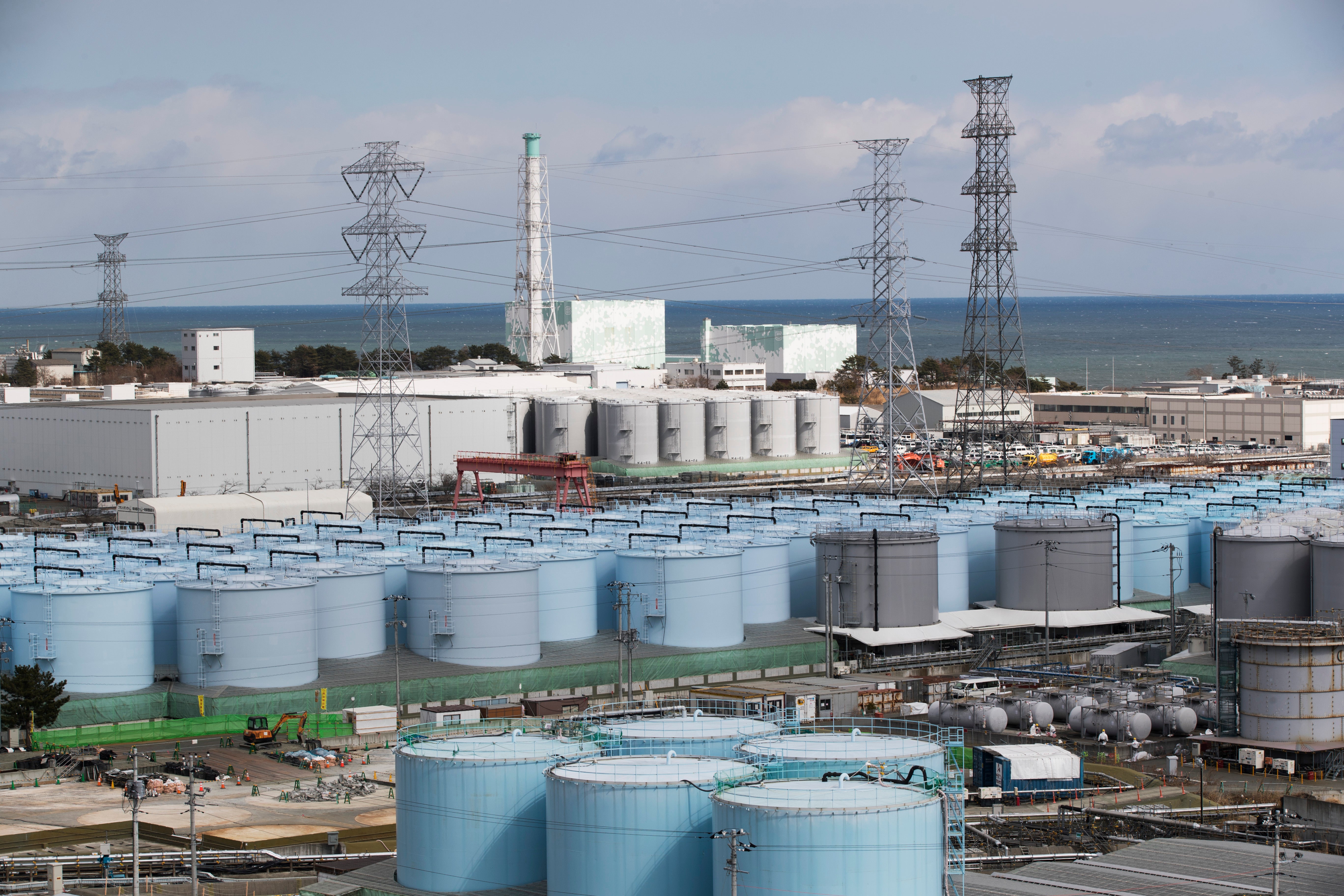IAEA seeks Japan transparency in release of Fukushima water
Experts from the International Atomic Energy Agency have asked Japan for full and detailed information about a plan to release treated but still radioactive water from the wrecked Fukushima nuclear plant into the ocean

Your support helps us to tell the story
From reproductive rights to climate change to Big Tech, The Independent is on the ground when the story is developing. Whether it's investigating the financials of Elon Musk's pro-Trump PAC or producing our latest documentary, 'The A Word', which shines a light on the American women fighting for reproductive rights, we know how important it is to parse out the facts from the messaging.
At such a critical moment in US history, we need reporters on the ground. Your donation allows us to keep sending journalists to speak to both sides of the story.
The Independent is trusted by Americans across the entire political spectrum. And unlike many other quality news outlets, we choose not to lock Americans out of our reporting and analysis with paywalls. We believe quality journalism should be available to everyone, paid for by those who can afford it.
Your support makes all the difference.Experts from the International Atomic Energy Agency asked Japan on Tuesday for full and detailed information about a plan to release treated but still radioactive water from the wrecked Fukushima nuclear plant into the ocean.
The three-member team, which is assisting Japan with the planned release, met Tuesday with government officials to discuss technical details before traveling to the Fukushima Daiichi plant for an on-site examination Wednesday. They will meet with Japanese experts through Friday.
Lydie Evrard, head of the IAEA s Department of Nuclear Safety and Security, said transparency and a full disclosure about the water and its treatment is key to ensuring safety for the project, which is expected to take decades.
The government and the plant’s operator, Tokyo Electric Power Company Holdings, announced plans in April to start releasing the water in the spring of 2023 so hundreds of storage tanks at the plant can be removed to make room for other facilities needed for its decommissioning.
The idea has been fiercely opposed by fishermen, local residents and Japan’s neighbors, including China and South Korea.
TEPCO plans to send the water through an undersea tunnel and discharge it from a location about 1 kilometer (0.6 mile) away from the coastal power plant after further treating and diluting it with large amounts of seawater to bring it below releasable limits.
Evrard said her team wants to monitor the release to make sure it meets IAEA radiation and environmental safety standards, and proposed a discussion of monitoring methods and other details.
Government and TEPCO officials say tritium, which is not harmful in small amounts, cannot be removed from the water, but all other isotopes selected for treatment can be reduced to safe levels. Controlled release of tritium from normal nuclear plants is a routine global practice, officials say.
IAEA and Japanese officials on Tuesday discussed tritium monitoring methods.
Japan has requested IAEA’s assistance to ensure the discharge meets safety standards and to gain the understanding of the international community.
Trade and industry minister Hiroshi Kajiyama told reporters Tuesday that IAEA's involvement will help build trust in the Japanese effort. He said Japan will fully cooperate.
A massive earthquake and tsunami in 2011 severely damaged three reactors at the Fukushima Daiichi plant, causing contaminated cooling water to leak. The water has been stored in about 1,000 tanks which the plant's operator says will reach their capacity late next year.
Japanese officials say disposal of the water is required for the decommissioning of the plant, and that its release into the ocean is the most realistic option.